Minimalism focuses on living with less and simplifying life. It’s known to improve mental health and make people feel better. This lifestyle encourages less stress by removing excess stuff and clearing up both physical and mental spaces.
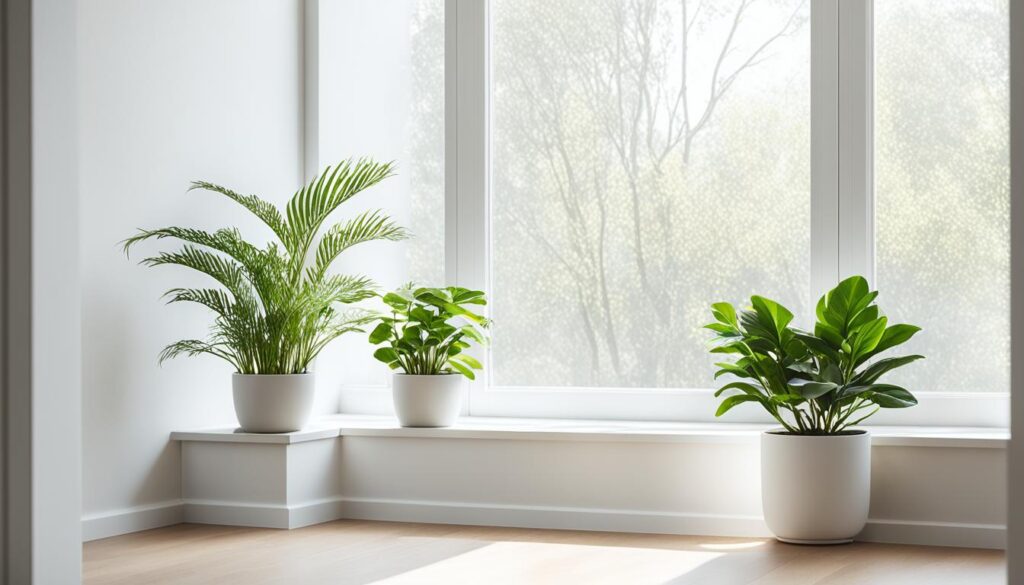
Key Takeaways:
- Minimalism reduces stress and anxiety by eliminating physical clutter and creating a more organized living space.
- By simplifying our surroundings, minimalism enhances focus and productivity.
- Embracing minimalism promotes financial security by encouraging mindful spending and conscious consumption.
- Minimalism redirects our focus from material possessions to experiences, personal growth, and meaningful connections, alleviating loneliness.
- Simplifying our lives and reducing clutter cultivates a sense of tranquility and well-being.
How Minimalism Reduces Stress and Anxiety
Minimalism does more than just clear out spaces. It’s been found to lessen stress and anxiety, making minds healthier. Embracing simplicity and shedding too much stuff frees us. This creates a calm space around us.
Clutter reduction is a big way minimalism helps. Organized, clear spaces bring calm and focus. Women in tidy spaces often feel less stressed and happier, studies show.
Minimalism cuts down the hassle of too many things. Letting go frees up our minds for more important stuff. We then aim better at our dreams and grow positively.
“Minimalism is not about sacrificing or depriving yourself; it’s about creating space for what truly brings you joy and fulfillment.”
Minimalism also means being mindful about choices, easing anxiety. It makes us think more about what we add to our lives. Buying wisely, not on impulse, saves money and stress.
Living with less sparks gratitude and happiness. Minimalism teaches us to love what we have, not always want more. Feeling content stops us from constant comparing, bringing peace.
A minimalist lifestyle supports mental and emotional health. Clear spaces, mindful choices, and gratitude reduce stress and anxiety. Minimalism makes life more balanced and joyful.
Why not try minimalism? Start small, like tidying a room or easing your schedule. Enjoy the mental freedom and well-being it brings.
Case Study: Mary’s Journey to Minimalism
Mary, overwhelmed by clutter, turned to minimalism for peace. She decluttered and made mindful choices. Now, she has a calm home, a clear mind, and loves life’s simple joys.
| Benefits of Minimalism for Mary: | Impact on Mental Health |
|---|---|
| Reduced physical clutter | Less stress and anxiety |
| Intentional decision-making | Clearer mind and focus |
| Increased gratitude and contentment | Improved overall well-being |
Mary’s story shows how minimalism can boost mental well-being. By embracing minimalist practices, she improved her life. Join her and see how minimalism can help you too.
Enhancing Focus and Productivity Through Minimalism
Minimalist living can help us focus better and be more productive. It lets us cut out distractions and keep our spaces neat. This way, we spend our energy on important tasks.
A cluttered space makes it hard to concentrate, studies say. Too many items around us can split our attention. It gets tough to focus on just one thing.
But, living simply brings calmness and order. It helps us get rid of distractions. Our minds clear up, letting us live in the moment more fully.
“Minimalism is the intentional promotion of the things we most value and the removal of everything that distracts us from it.” – Joshua Becker
Having a neat workspace makes it easier to prioritize and get things done. We find things faster and stay focused. This kind of setting boosts our productivity.
Also, minimalism isn’t just about our physical space. It’s about decluttering our digital life and thoughts too. Spending less time on social media helps sharpen our focus.
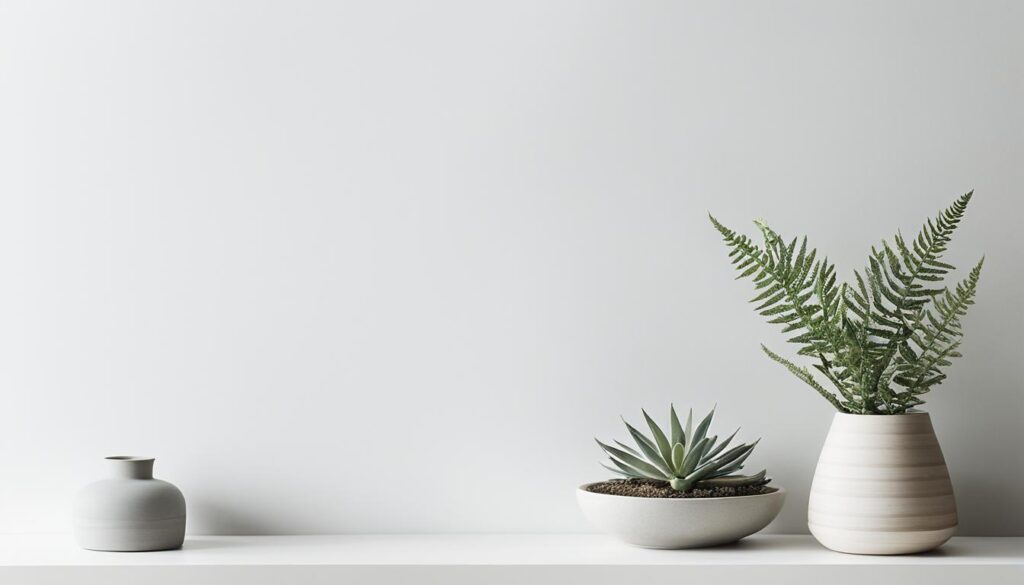
| Benefits of Enhancing Focus and Productivity Through Minimalism |
|---|
| 1. Increased ability to concentrate |
| 2. Improved efficiency and time management |
| 3. Enhanced creativity and problem-solving skills |
| 4. Reduced mental fatigue and burnout |
This focused mindset brings more than just work success. It lets us enjoy our hobbies and relationships more. We lead a fulfilling and balanced life.
Creating a Minimalist Workspace
Want to focus better with minimalism? Make a minimalist workspace. Here are tips to start:
- Remove unnecessary items from your desk, keeping only the essentials within reach.
- Organize your workspace using simple storage solutions to minimize visual distractions.
- Utilize digital tools for note-taking and task management to reduce physical clutter.
- Incorporate natural elements such as plants or natural light to create a calm and inspiring environment.
Follow these steps to create a space that encourages focus and boosts productivity.
Financial Security and Minimalism
Minimalism is more than just cleaning up our spaces. It affects our finance health in a big way. With a simpler mindset, we gain financial security and mental wellness.
Research links loving stuff too much with money stress. We often buy too much, chasing what’s in style. This can empty our wallets and make us anxious.
Minimalism makes us think about our buys. We learn to tell needs from wants. This stops us from buying on impulse and cuts down on costs.
This lifestyle gets us out of the “buy more” trap. It lets us find joy and content in simpler things. We focus on experiences and real connections, not stuff.
Minimalism is great for keeping money worries at bay. We think more about what we buy. This saves us money, reduces debt, and helps reach big goals.
“Minimalism fights a culture that tells us to always want more. It lets us manage our money, focusing on what really counts.”
It tells us to cherish experiences, not things. We focus on making memories and growing as people. This reduces spending on stuff we don’t need.
Here’s how minimalism can protect our finances:
| Financial Security | Benefits of Minimalism |
|---|---|
| Reduced financial stress | Eliminating the pressure to constantly upgrade and buy more |
| Increased savings | Mindful spending and avoidance of unnecessary expenses |
| Lower debt levels | Elimination of impulse buying and prioritizing long-term goals |
| Financial freedom | Redirecting resources towards experiences and personal growth |
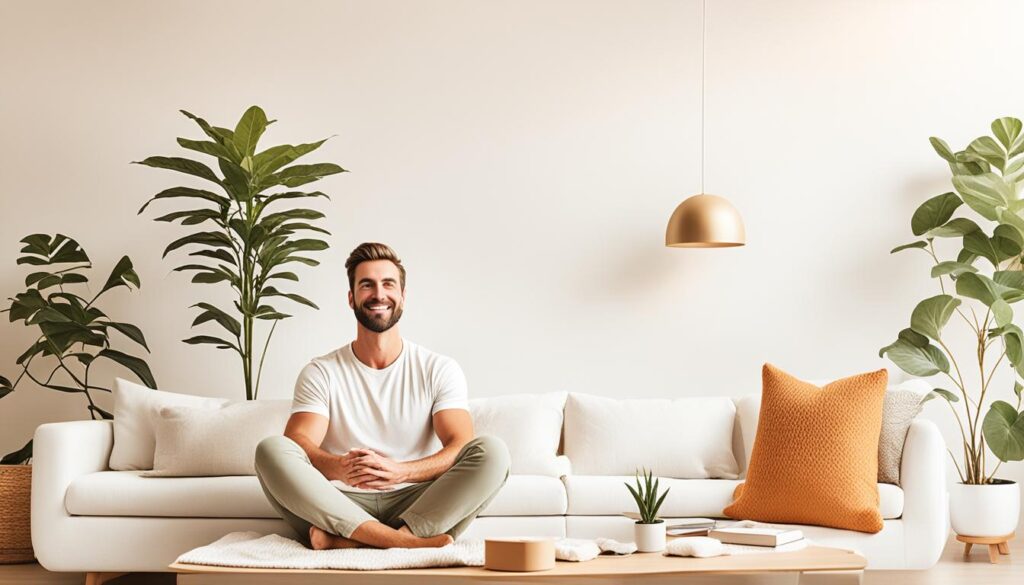
Choosing minimalism helps us avoid overspending. It’s good for our wallets and our peace of mind. By being wise and deliberate with our choices, we get financial stability and a more fulfilling life.
Alleviating Loneliness Through Minimalism
Minimalism is more than just cleaning up spaces. It’s about our feelings and connecting with others too. By focusing on experiences and meaningful relationships rather than things, we can feel less lonely.
Our society often thinks having more stuff means success. This can make us feel apart from others. A minimalist life helps us value deep connections more than endless stuff, breaking down barriers.
Minimalism teaches us to choose meaningful relationships over constant shopping. Letting go of wanting more helps us feel fulfilled and connected.
The Power of Meaningful Connections
With minimalism, we get rid of shallow friendships. We aim for real connections that boost our spirits. These deep bonds fight loneliness and make us happier.
“Minimalism is not just about owning less; it’s about connecting more.”
Minimalism drives us to share experiences that bring us closer to others. From family gatherings to community events, being together strengthens our bonds.
Embracing Community and Collaboration
Minimalism doesn’t just help us. It builds strong communities too. By being minimalist, we think more about our planet and society. This makes us want to work with others for a better world.
We meet people who think like us through community projects or volunteering. These friendships offer new chances to grow and achieve together, making us feel less alone.
| Benefits of Alleviating Loneliness Through Minimalism |
|---|
| 1. Increased sense of belonging and connection |
| 2. Strengthened emotional support network |
| 3. Opportunities for meaningful shared experiences |
| 4. Collaborative and supportive communities |
Minimalism isn’t about cutting ourselves off. It’s about making space for what’s important. By choosing relationships over possessions, we can beat loneliness, feel more connected, and be happier.
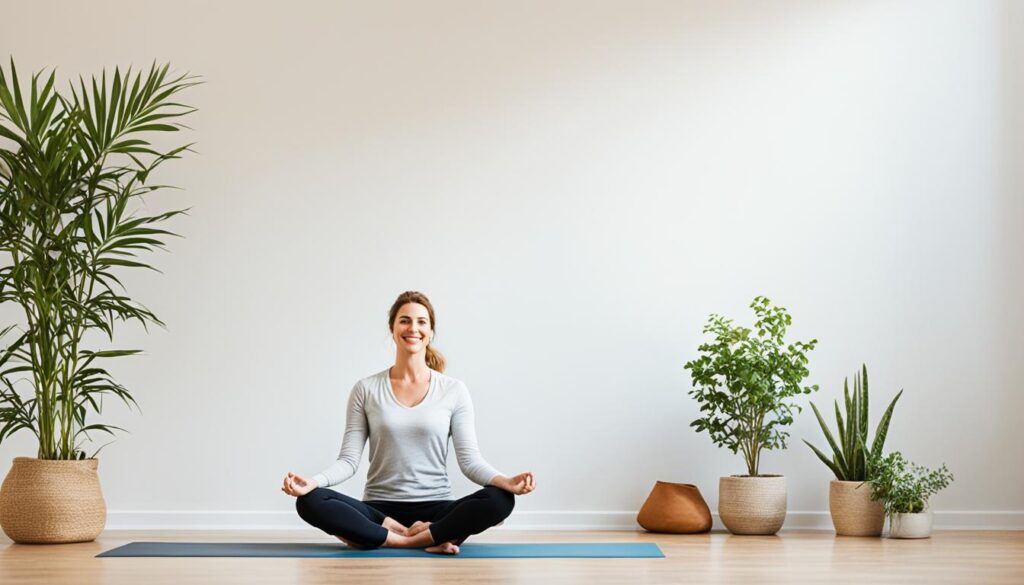
Cultivating a Sense of Well-being Through Minimalism
Simplifying our lives reduces clutter and boosts our well-being. By adopting minimalism, we enjoy peace, harmony, and happiness. This way of life clears not just our homes but our minds and hearts too.
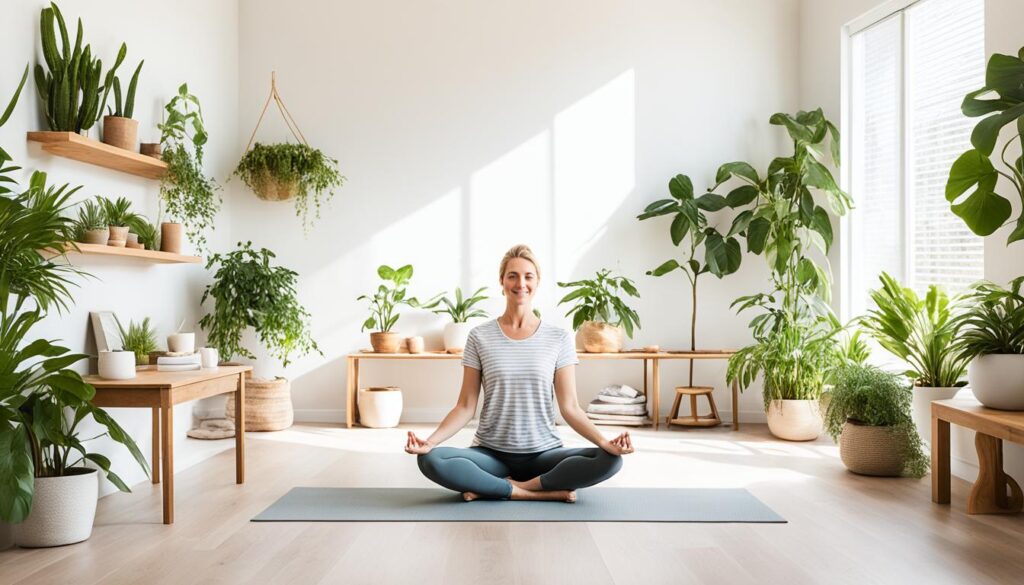
Minimalism helps us feel in charge of our lives. Letting go of unnecessary stuff, we control our space better. We move from being owned by things to choosing what truly matters. This boosts our happiness and gives life more meaning.
“Minimalism is not about deprivation; it’s about creating space for what truly matters.”
Living simply also makes us feel capable. Decluttering leads to better organization and decision-making. Understanding our real needs increases our self-confidence. This makes us feel better about ourselves.
The Mental Space Advantage
With minimalism, we gain mental space. Letting go of the non-essential sharpens our focus. This allows us to concentrate on our passions, relationships, and care for ourselves. It leads to creativity and deep personal insights.
Embracing simplicity helps us live in the moment. Without clutter, we worry less about the past or future. We notice more about our world, leading to joy and deep connections.
Minimalism improves our mental health and more. It makes our hearts lighter and our connections deeper. Through simplicity, we discover a life full of purpose and real happiness.
The Transformational Power of Minimalism
Minimalism is not just about decluttering. It also transforms our lives deeply. By adopting a minimalist lifestyle, we explore self-discovery and growth. This lets us be our best selves.
Minimalism frees us from consumerism’s hold. It shows us that happiness comes from within, not from owning things. We learn to find joy and fulfillment from the inside.
It helps us let go of the unneeded. We can move on from things that don’t help us grow. By doing so, we make room for new experiences and growth. Minimalism makes us focus on what’s important and live by our values.
Minimalism greatly affects our mental health. Cleaning our space also clears our mind. Simplifying life brings peace and reduces stress. A clean space means a calm and clear mind, which is good for our health.
“The ability to simplify means to eliminate the unnecessary so that the necessary may speak.” – Hans Hofmann
Minimalism makes us mindful and intentional. By choosing carefully how we live, we become more aware. This leads to a happier life and an appreciation for simplicity.
Embracing minimalism means more financial freedom. It lets us control our money better. We learn to tell needs from wants, which helps make better money choices.
Minimalism improves our relationships too. We focus more on people than things. This helps us build stronger connections and feel a sense of belonging.
Minimalism simplifies life and highlights what’s truly important. It helps us grow, free ourselves from wanting more things, and enjoy life’s journey more.
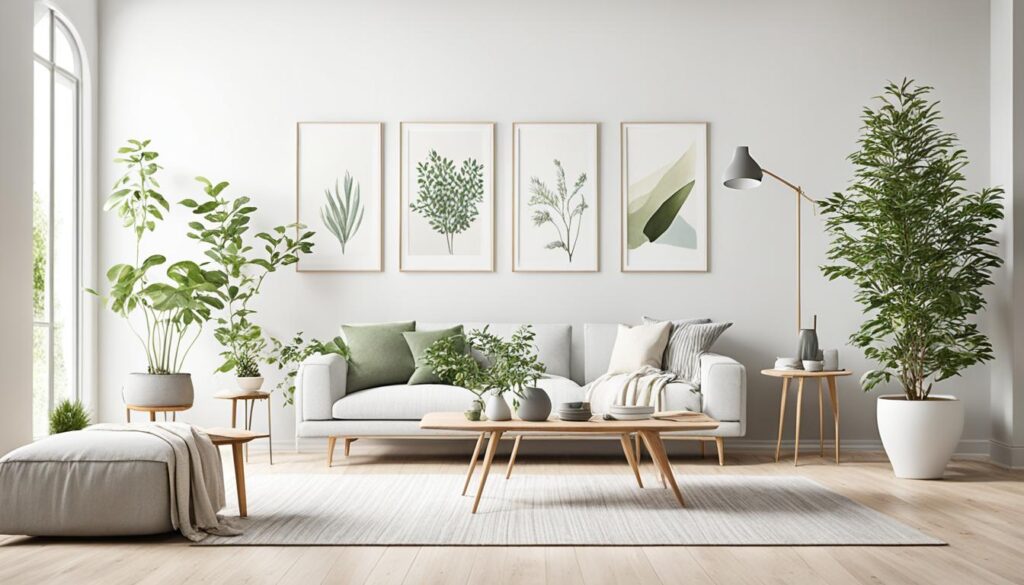
Let’s look more into how minimalism helps our mental health. It can lessen stress and anxiety. It can also improve our focus and financial well-being.
Minimalism as a Tool for Mental Well-being
Minimalism can deeply affect our mental well-being. It helps us escape from feelings like fear and depression. By choosing to live simply, we make room for what’s really important. This brings us peace and clarity.
By cutting down clutter, we gain mental health benefits. This means clearing out physical stuff and mental worries. A tidy space leads to a peaceful mind. It helps us stay positive.
Mental Wellness Through Minimalism
Minimalism helps us let go of things we don’t need. It shows us that happiness isn’t about how much we own. This way, we can focus on what really brings us joy.
We then have more time for our mental well-being. We focus on joyful activities and personal growth. Minimalism is about caring for ourselves and enjoying healthy relationships.
Embracing minimalism is not about deprivation, but rather about consciously choosing what adds value to our lives and letting go of what does not. By doing so, we create room for personal growth and mental well-being. – Joshua Becker
The Benefits of a Minimalist Mindset
Thinking like a minimalist is good for our minds. It helps us remove distractions and focus better. Being present and focused improves our productivity and happiness.
Minimalism also means a better relationship with money. By thinking more about what we buy, we can save more and stress less. This financial peace improves our mental health.
Using Minimalism to Create Balance
Minimalism helps us balance our lives. It makes us think about what really matters to us. This prevents feeling overwhelmed and promotes well-being.
It gives us control over our mental health. Minimalism means living with intention. By following its principles, we enjoy lasting mental and emotional health benefits.
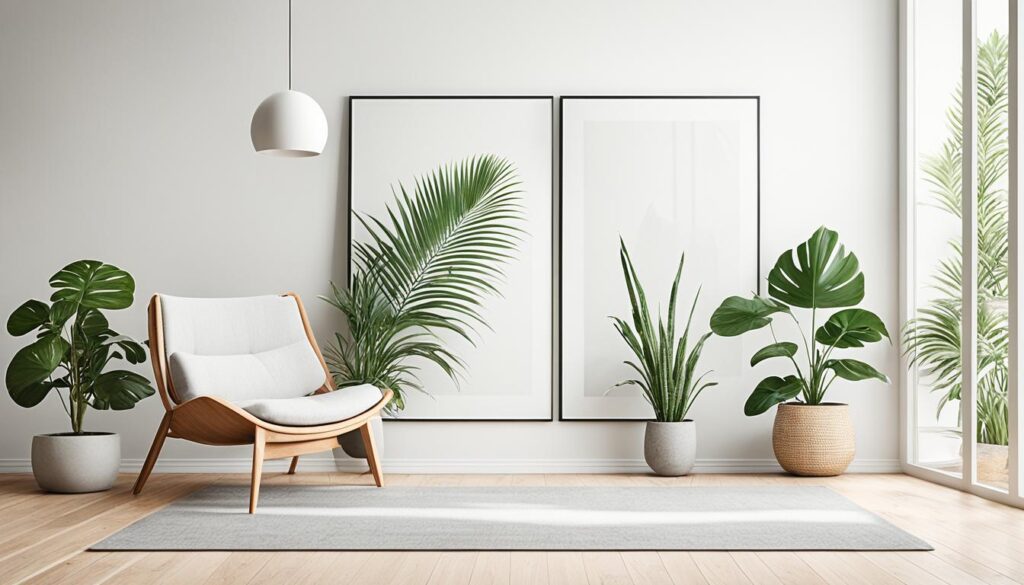
| Benefits of Minimalism for Mental Well-Being | Keywords |
|---|---|
| Promotes clarity and peace of mind | mental wellness through minimalism |
| Reduces physical and internal clutter | minimalist lifestyle benefits |
| Allows for intentional living and redefining values | mental health benefits of decluttering |
| Enhances focus, productivity, and mindfulness | minimalist mindset benefits |
| Fosters financial stability and reduces stress | benefits-of-minimalism-for-mental-health |
| Promotes balance and prioritization | mental wellness through minimalism |
Living a Meaningful Life with Less
Minimalism questions if more stuff makes us happy. It makes us think: “What if I have less?”
By choosing minimalism, we find joy not in things, but in life itself. Getting rid of clutter frees us. This lets us focus on what’s truly important.
Minimalism values simplicity, relationships, and growth over stuff. It pushes us to live on purpose, with intention.
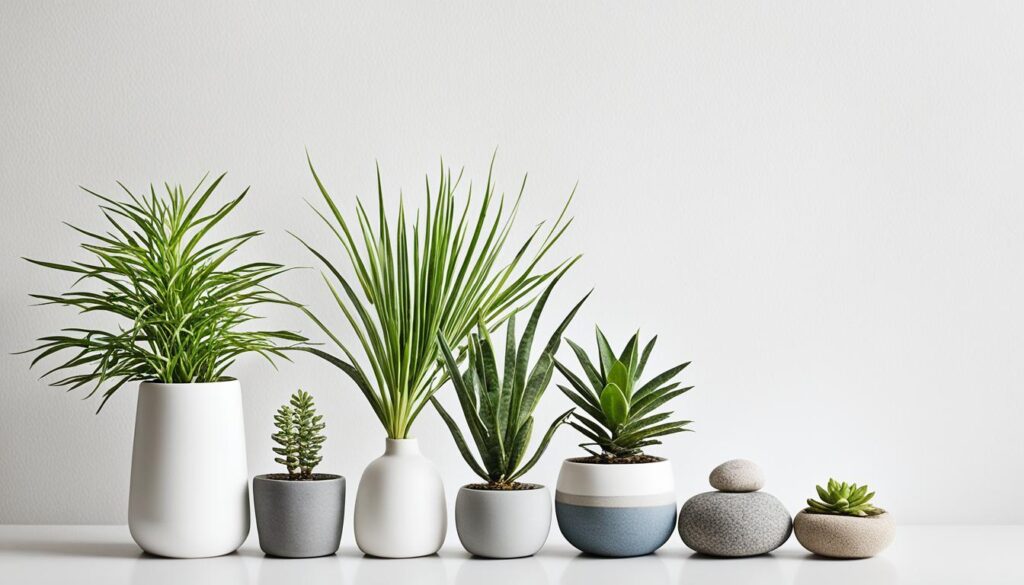
“Simplicity is the ultimate sophistication.” – Leonardo da Vinci
The Impact of Minimalism on Mental Health
Minimalism boosts our mental health. It brings peace and clarity. It also lowers stress and makes us happier.
Letting go of clutter makes our spaces peaceful. This reduces our stress and helps us think clearer.
Minimalism also gives us control and encourages mindfulness. By simplifying, we concentrate on what matters most.
Living with Intention and Purpose
Minimalism encourages purposeful living. It makes us rethink our choices. We focus on what brings us joy and fulfillment.
Choosing minimalism means leaving behind the need for more stuff. We turn towards experiences, growth, and connections instead.
Creating Space for What Truly Matters
Minimalism helps us make room for what’s important. By decluttering, we simplify our lives. This lets us care for ourselves, nurture relationships, and follow our passions.
Living with less means less clutter and more focus on happiness. Minimalism leads to a more intentional, fulfilling life.
The Advantages of Minimalism for Mental Health
| Advantage | Description |
|---|---|
| Reduced stress and anxiety | By eliminating clutter and simplifying our living space, minimalism promotes a sense of calm and reduces stress and anxiety. |
| Improved mental clarity | Living with less allows us to free up mental space and focus on what truly matters, leading to improved mental clarity and focus. |
| Enhanced well-being | Minimalism cultivates a greater sense of well-being by emphasizing experiences, personal growth, and meaningful connections over material possessions. |
| Greater intention and purpose | By evaluating our choices and priorities, minimalism empowers us to live with intention and pursue a purpose-driven life. |
| Emotional liberation | Letting go of unnecessary possessions frees us from the emotional attachment to material goods, allowing for emotional liberation and personal growth. |
Clutter and its Impact on Well-being
Clutter can be physical or mental, and it often hurts our well-being. Many studies reveal that clutter can raise stress and make it hard to focus. It also challenges our ability to process information well.
Research shows that cluttered spaces increase cortisol, the stress hormone. This can lead to anxiety and trouble concentrating. Physical clutter doesn’t just fill up our spaces; it also clutters our minds, making clear thinking and decision-making tough.
By getting rid of clutter in our spaces, we improve our mental health. Clearing out things we don’t need makes our environments calm and orderly. This cleanliness helps us stay focused, be more productive, and feel less stressed.
Physical Clutter and Mental Well-being
Physical clutter can make our spaces chaotic and tiring to look at. When there’s too much stuff, finding what we need is frustrating. It feels like everything is in constant disorder.
A home without clutter is calming and restful. We can make our spaces look good and function for us. A tidy environment lets us relax more easily after a busy day.
The Mental Burden of Clutter
Clutter isn’t just about things; it affects our mental state, too. When our minds are full of worries and distractions, finding focus is hard. It’s tough to concentrate on what’s happening now.
Dr. Emily Wilson, a psychologist, says our brains constantly handle information like tasks and worries. A cluttered mind makes concentrating hard by using up our mental energy.”
We can lighten this mental load through mindfulness, meditation, and journaling. These practices help clear our minds. They bring mental clarity, lower stress, and improve our mental health.
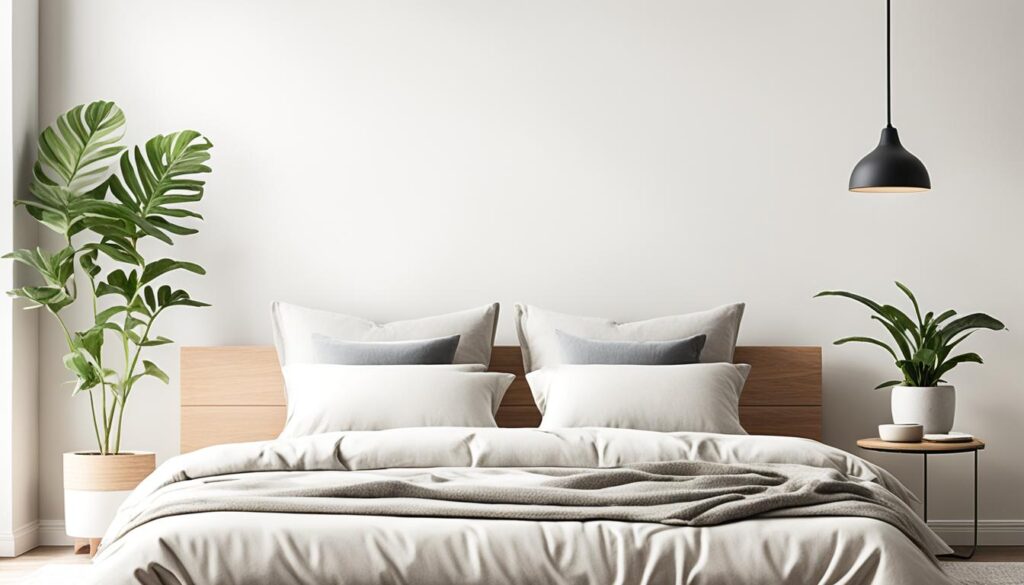
The Impact of Clutter on Mental Health
| Effects of Clutter | Impact on Mental Health |
|---|---|
| Increased stress levels | Heightened anxiety and difficulty in relaxation |
| Reduced ability to focus and concentrate | Impaired productivity and decreased mental clarity |
| Heightened feelings of overwhelm | Increased mental burden and difficulty in decision-making |
| Visual and mental distraction | Reduced sense of peace and tranquility |
The table clearly shows clutter’s big impact on mental health. Knowing how clutter harms us helps. Taking steps to declutter our spaces makes our living environment more peaceful. This promotes better mental health.
Embracing Minimalism for Transformation
Minimalism is more than cleaning up our spaces. It’s a journey that changes us in many ways. By removing things we don’t need, we find out more about ourselves and grow.
Choosing to live simpler helps us leave the past behind and focus on now. We focus on important things, leading to a happier life. Minimalism helps us remove the extra and think in a clear way, bringing real change and better happiness.
Minimalism shows us what makes us happy. We learn to love doing things more than having things. We care more for our minds and hearts. Letting go of stuff makes room for creativity, close relationships, and self-improvement. Living with less brings more meaning, focus, and better quality to our lives.